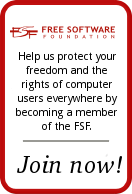The MassCUE conference is tomorrow, Wednesday, and Thursday at Gillette Stadium in Foxboro, Massachusetts. You do not have to be a fan of the Patriots to get in, but it doesn’t hurt, of course.
I will be working the MassCUE information desk during the event. Drop by to say hello.
Promoting easy entry into open source (FOSS) software has been a hallmark of VALO-CD, a product of a Finish company. The CD focuses on providing “best in class” software for Windows users. The goal was to make it easy to select a program and install applications like LibreOffice and Firefox.
Times are changing. Version 9 is expected to be the last with the CD format. The plan for version 10 is a USB which may be called “LibreKey.”
You can read more at:
http://seravo.fi/2013/past-present-future-valo-cd
Copyright and plagiarism and the effective use of Internet resources are vital elements of creative assignments in schools. Access to digital versions of books, magazines, audio and video resources have changed the nature of what a student can do when constructing a school assignment.
It has been common practice to ask students to write about a famous person, for example. The writing part may actually be the focus of the assignment. The person being used isn’t the real focus. Typically students get to choose from a batch of people and then gather resources to learn what they need in order to begin writing the essay.
A teacher’s common practice has been the recommendation of resources, sending children to the school or town library to access encyclopedias, books, newspapers, etc. A rough draft frequently follows so the teacher can comment on style, grammar, spelling and such along with proper use of quotations with adequate citations. The final draft gets a grade.
The Internet has given teachers the task of adding online resources to the mix. That means each teacher must add some online/digital expectations to the assignment and rough draft evaluation. Teachers need to incorporate an honest discussion of fair use, copyright, remixing. The vetting of resources which was once passed off to librarians now must become part of a teacher’s routine. Teachers need to make very few assumptions. Some students will have their own computer/tablet/smartphone and good support at home. Some students will be better than others at search strategies. The assignment needs to become more broad so it can include a student sharing of those skills. Each school year, as student move ahead, the discussion needs to become more rich and nuanced like any other phase of helping studnts learn.
With that in mind, a discussion about and use of Open Educational Resources is important. Teachers need to have a good personal understanding of the digital issues involved. Plagiarism has long been part of the discussion. Now, when we talk about copyright compliance, it is not only valuable, but vital to highlight the distinction between restricted and open usage of all the easily accessible materials a student may want to incorporate in an assignment.
I would recommend you read and refer others to the article, “Teach kids about copyright: a list of resources from Creative Commons” by Jane Park. Develop your own skills to become as strong in resource selection as possible. Understand the alternatives yourself. That way you can be the best guide you can be for this year’s students and keep exploring to prepare for the next year and the next. In fact, you will be modelling the process for your students. Revealing your process may actually help them understand how you see that fabled goal, “life long learning.”
